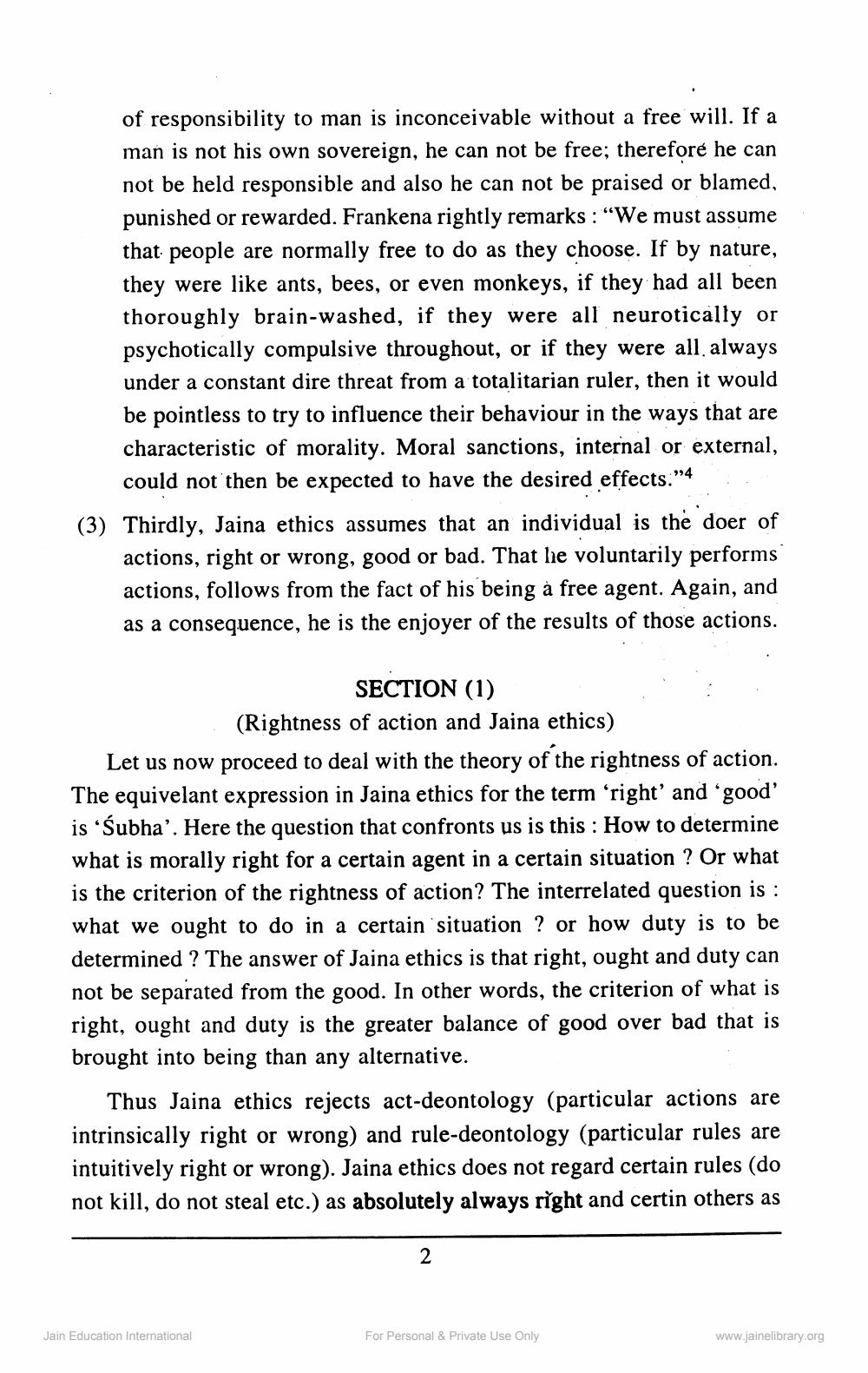Book Title: Right and the Good in Jaina Ethics Author(s): Kamalchand Sogani Publisher: ZZZ Unknown View full book textPage 7
________________ of responsibility to man is inconceivable without a free will. If a man is not his own sovereign, he can not be free; therefore he can not be held responsible and also he can not be praised or blamed, punished or rewarded. Frankena rightly remarks: “We must assume that people are normally free to do as they choose. If by nature, they were like ants, bees, or even monkeys, if they had all been thoroughly brain-washed, if they were all neurotically or psychotically compulsive throughout, or if they were all always under a constant dire threat from a totalitarian ruler, then it would be pointless to try to influence their behaviour in the ways that are characteristic of morality. Moral sanctions, internal or external, could not then be expected to have the desired effects:"4 (3) Thirdly, Jaina ethics assumes that an individual is the doer of actions, right or wrong, good or bad. That he voluntarily performs actions, follows from the fact of his being a free agent. Again, and as a consequence, he is the enjoyer of the results of those actions. SECTION (1) (Rightness of action and Jaina ethics) Let us now proceed to deal with the theory of the rightness of action. The equivelant expression in Jaina ethics for the term 'right' and 'good' is 'śubha'. Here the question that confronts us is this : How to determine what is morally right for a certain agent in a certain situation ? Or what is the criterion of the rightness of action? The interrelated question is : what we ought to do in a certain situation ? or how duty is to be determined ? The answer of Jaina ethics is that right, ought and duty can not be separated from the good. In other words, the criterion of what is right, ought and duty is the greater balance of good over bad that is brought into being than any alternative. Thus Jaina ethics rejects act-deontology (particular actions are intrinsically right or wrong) and rule-deontology (particular rules are intuitively right or wrong). Jaina ethics does not regard certain rules (do not kill, do not steal etc.) as absolutely always right and certin others as Jain Education International For Personal & Private Use Only www.jainelibrary.orgPage Navigation
1 ... 5 6 7 8 9 10 11 12 13 14 15 16 17 18 19 20 21 22
